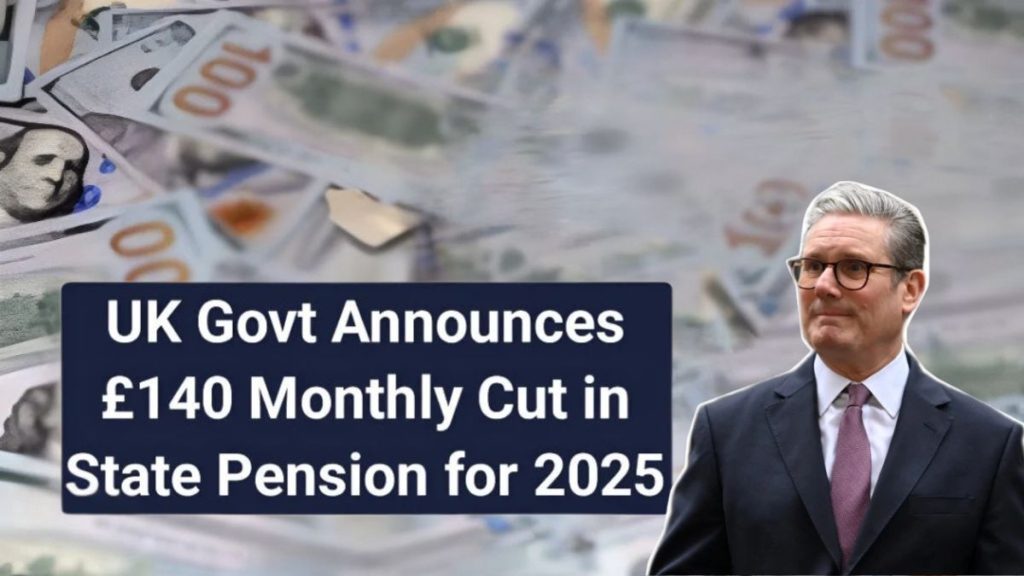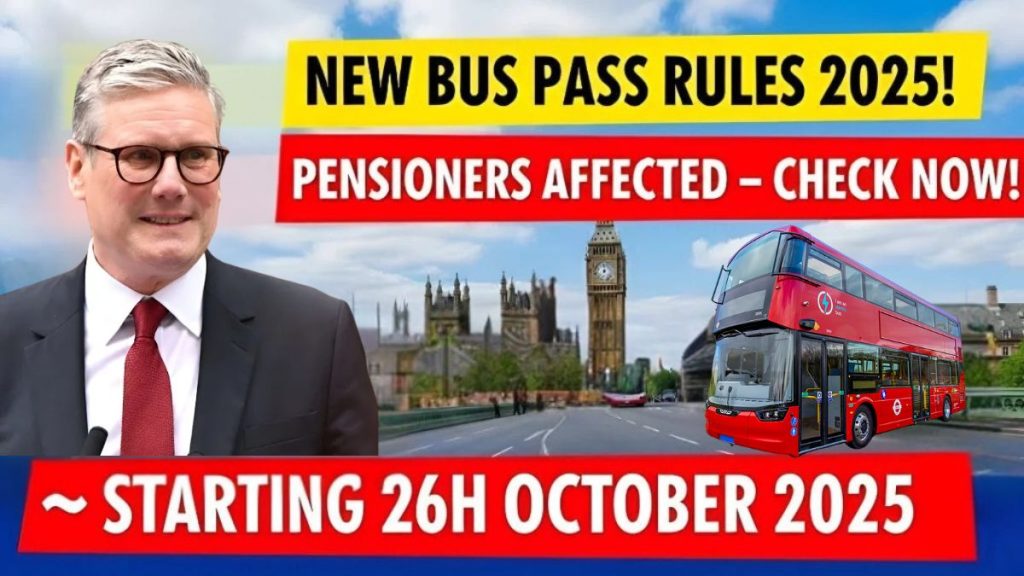Hello Everyone, The UK Government has officially confirmed a major update to the Blue Badge Scheme starting 28 October 2025. This change is set to impact thousands of disabled motorists and their families across England, Scotland, Wales, and Northern Ireland. The Department for Transport (DfT) has stated that the new rules aim to make the scheme fairer, more transparent, and accessible to those who truly need it.
A Modern Overhaul for an Essential Scheme

The Blue Badge Scheme, a lifeline for millions of disabled drivers in the UK, is about to undergo one of its most significant transformations in decades. Beginning 28 October 2025, the government will roll out a new digital system, stricter eligibility checks, and tougher penalties for misuse.
According to the Department for Transport (DfT), the changes will modernise the long-standing program, enhance fairness, and ensure that support reaches genuine users while preventing abuse that has plagued the system in recent years.
Why the Blue Badge Scheme Matters
For many people with mobility challenges, the Blue Badge is not just a parking permit — it is a symbol of independence and accessibility. The badge allows holders to park closer to essential services, hospitals, shopping centres, and workplaces, helping them stay mobile and active in their communities.
However, misuse has grown steadily over the years. Investigations by local councils revealed instances of fake applications, forged badges, and non-disabled individuals using relatives’ badges illegally. The new framework aims to stop these practices while protecting the rights of legitimate users.
Major Changes Coming in 2025
The 2025 Blue Badge reform introduces several new measures designed to strengthen verification, simplify applications, and deter misuse. These updates will affect both new applicants and current badge holders.
Updated Eligibility Criteria
From October 2025, the eligibility process will become more comprehensive and data-driven.
- Applicants must provide verified medical records through NHS-linked systems, ensuring transparency and consistency across regions.
- People with mental health conditions that severely affect mobility will continue to qualify, reaffirming the government’s commitment to inclusivity.
- Temporary badges (valid for 6 to 12 months) will be introduced for individuals recovering from short-term health conditions.
This reform means applicants will face a clearer, medically verified system — reducing uncertainty and inconsistency between local councils.
Digital Verification and Smart Badge Technology
The traditional paper badge system will be replaced by a digital “smart badge” featuring a QR code and embedded microchip.
- Enforcement officers will scan the code using mobile devices to instantly confirm authenticity.
- Each badge will be linked to the holder’s NHS number, ensuring secure identity verification.
- Renewal reminders will be automatically sent via email or SMS, reducing missed renewals.
This technological upgrade marks a turning point in how the UK manages accessibility permits — streamlining operations while clamping down on fraud.
Enhanced Application and Renewal Process
From 28 October 2025, all Blue Badge applications will move to an upgraded digital platform available through GOV.UK and local councils.
Key improvements include:
- Instant eligibility checks via NHS and DVLA databases.
- A helpline for elderly or non-digital applicants.
- Reduced processing times from 12 weeks to around 3 weeks.
By integrating national health and vehicle data, the government aims to make the process more efficient and accessible to all users
Stronger Rules for Misuse and Enforcement
To combat the growing misuse of Blue Badges, the government is introducing tougher penalties and new enforcement powers.
The following offences will attract stricter punishments:
- Using someone else’s badge without them present.
- Displaying expired or tampered badges.
- Creating or using fake badges.
Penalties under the new system:
- Fines increased from £1,000 to £2,500 per offence.
- Repeat offenders may lose their driving licence for up to six months.
- Councils gain authority to suspend or revoke badges instantly upon misuse detection.
This step is expected to dramatically cut fraudulent activity, restoring credibility to a scheme that many rely upon daily.
Support for Disabled Drivers and Caregivers
While the rules are becoming stricter, the DfT insists the goal is not to limit access but to improve fairness and protect those who genuinely qualify.
Support measures include:
- Free help with online applications through council support centres.
- The ability for caregivers to manage applications for dependents.
- Automatic renewals for individuals with lifelong disabilities (verified through NHS).
- Priority replacement of lost or stolen badges within five working days.
These updates ensure the process remains inclusive, especially for older or less tech-savvy citizens.
Impact on Local Councils and Implementation
The overhaul also reshapes how local authorities handle applications, renewals, and enforcement. Councils will receive DfT funding to modernise systems and train staff for the transition.
Local authority duties will include:
- Installing digital scanning tools for instant badge verification.
- Managing integrated databases linking NHS and DfT systems.
- Reporting misuse cases quarterly to the Department for Transport.
This decentralised but standardised model ensures consistent service quality across the UK while maintaining local accountability.
Public Reaction and Concerns
Public and advocacy group responses have been largely positive. Disability organisations welcomed the tighter fraud controls and digital updates, saying they will “restore dignity” to legitimate users.
However, concerns have been raised regarding digital access for older adults and those without internet connectivity. In response, the government confirmed that in-person support would remain available through councils, libraries, and local service centres, ensuring nobody is excluded from the new system.
How to Prepare Before October 2025
With the new system set to launch in late 2025, current and potential badge holders are encouraged to prepare early.
Here’s what to do before the rollout:
- Check your current badge’s expiry date and note your renewal window.
- Update your contact details with your local council to receive notifications.
- Keep medical records current — verification will rely on NHS-linked data.
- Learn the new online process at www.gov.uk/blue-badge.
- Report misuse if you witness fraudulent use of a Blue Badge.
Being proactive will help applicants avoid delays during the transition and ensure uninterrupted access to parking privileges.
The Benefits of the New Blue Badge System
The 2025 reform promises to create a fairer, faster, and more secure system. Among its key benefits:
- Reduced fraud and misuse through smart verification.
- Faster approvals and renewals via digital processing.
- Stronger accessibility support for both physical and hidden disabilities.
- Better coordination between the DfT, NHS, and local councils.
- Simpler communication through automated alerts and digital updates.
Ultimately, the reforms aim to restore public trust and ensure that the Blue Badge system continues to serve as a reliable support mechanism for those most in need.
Looking Ahead: A Modern, Inclusive Future
The Blue Badge update aligns with the UK’s broader goal of using technology for inclusive public services. By linking systems across departments and simplifying access for applicants, the government hopes to set a new national standard for disability support.
While the transition may take time, the end result will be a more transparent, digitally secure, and accessible system that empowers millions of people with mobility challenges to live independently and confidently.
FAQs on the 2025 Blue Badge Changes
1. When do the new Blue Badge rules come into effect?
The new Blue Badge Scheme will take effect from 28 October 2025 across the UK.
2. What happens to my current Blue Badge after October 2025?
Existing paper badges will remain valid until expiry but will be replaced with digital smart badges upon renewal.
3. How will the digital Blue Badge system work?
Each badge will include a QR code and microchip, allowing instant verification by enforcement officers. It will be linked to the holder’s NHS number for secure identification.
4. Do I need to reapply under the new system?
If your badge expires after October 2025, your renewal will be processed under the new digital system automatically.
5. Will older people without internet access be affected?
No. Councils and libraries will provide in-person assistance for those unable to apply online, ensuring inclusivity for all users.

















